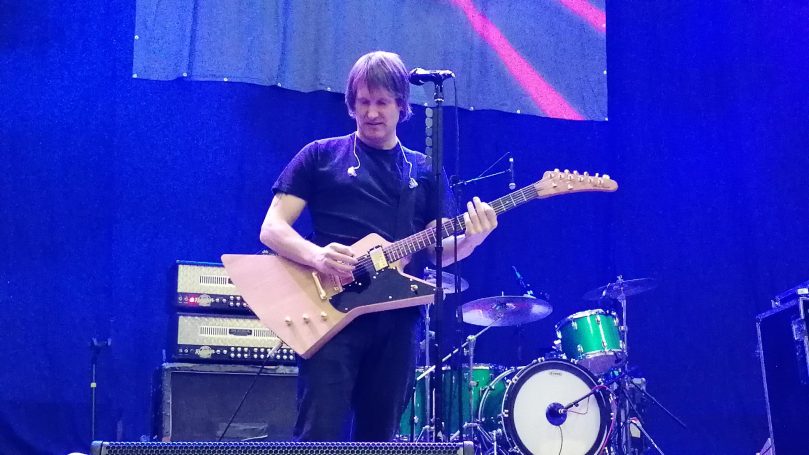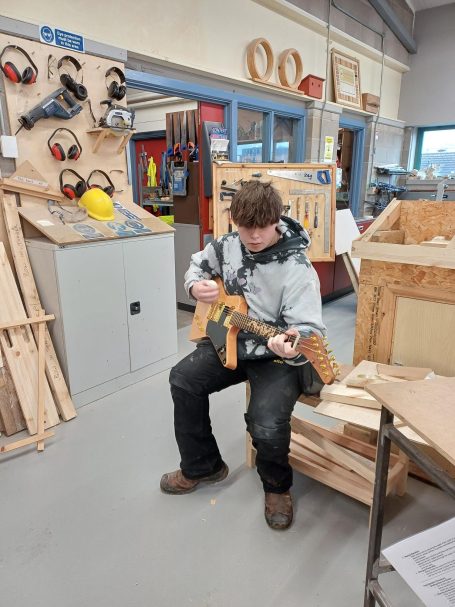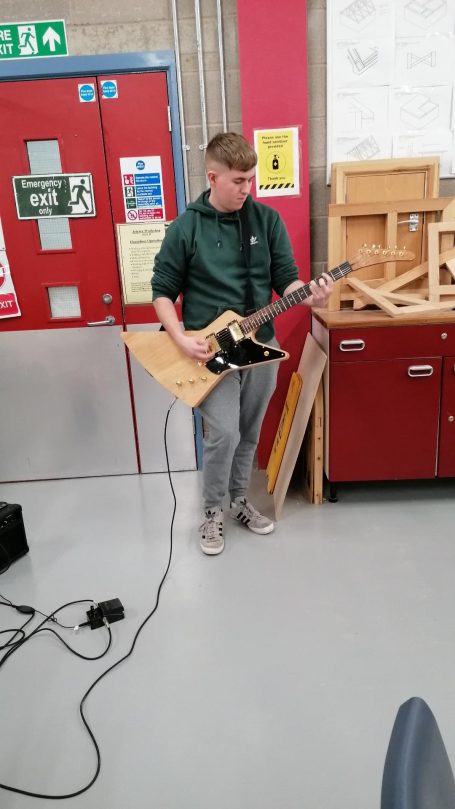Dendrite Guitars
Dendrite Guitars is a Belfast Metropolitan College collaborative project exploring traditional and digital engineering techniques to manufacture electric guitars.
Established in January 2023, a group of engineers and music technicians came together to produce the first electric guitar designed and manufactured at the Belfast Metropolitan College, Millfield Campus.
The aim of the project, to explore digital design techniques, materials research, electrical engineering, and music theory to enhance technical skills development.
The objective is to provide “live” manufacturing projects in conjunction with local artists, in support of careers associated with the NI music industry.
On Tuesday 19 December 2023, the first Dendrite Guitar produced was played on stage at the Ulster Hall Belfast by Tim Wheeler, singer song writer of local rock icons Ash, during the sound check for their Race the Night Tour.

Build a Guitar
Learn the fundamental tasks necessary to manufacture an electric guitar.
Understand the principles of guitar construction using CAD/CAM and CNC to complete the larger work.
Develops skills on an 'Explorer' style electric guitar and body cut by digital techniques and finished by hand.
This course caters to learners of all abilities and skills.
Key elements you will learn:
- Woodworking
- Basic Luthery
- Basic CAD/CAM
- Inlay/marquetry
- Understanding of electric guitar making and set-up
At the end of the course you should have a completed Explorer style guitar!
Visit the Belfast Met Course page on the link below:
Electric Guitar Making (Introduction) - P01614-AA - Course - Belfast Met

Circular Economy
The application of circular economy principles in the production of electric guitars promotes sustainability by reducing waste.
By incorporating recycled and upcycled materials—such as reclaimed wood, repurposed metals, and eco-friendly composites our aim is to minimise the environmental impact while maintaining high-quality craftsmanship.
Sustainable production also involves energy-efficient manufacturing processes, the use of non-toxic finishes, and modular designs that allow for easy repair and component replacement, reducing the need for complete instrument disposal.
Additionally, the project team embrace ethical sourcing and responsible supply chains ensures that materials are obtained with minimal ecological and social harm.
By integrating circular economy strategies, our objective is to move towards a more sustainable future without compromising on tone, durability, or aesthetic appeal.

Digital by Design
Digital design and manufacturing techniques play a crucial role in driving economic growth by enhancing productivity, reducing waste, and fostering innovation across industries.
Technologies such as computer-aided design (CAD), computer-aided manufacturing (CAM), and additive manufacturing (3D printing) streamline production processes, enabling businesses to create complex, high-precision components with greater efficiency.
These advancements lower costs, shorten development cycles, and support mass customisation, giving companies a competitive edge in global markets.
Digital manufacturing fosters job creation in high-value sectors such as engineering, automation, and data analytics, while also contributing to sustainability by optimising material usage and energy consumption.
GET IN TOUCH
E-mail: ccorken@belfastmet.ac.uk
We need your consent to load the translations
We use a third-party service to translate the website content that may collect data about your activity. Please review the details in the privacy policy and accept the service to view the translations.









